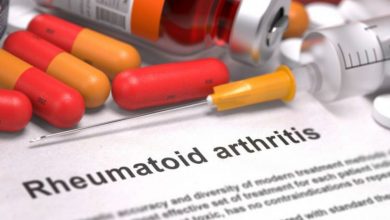Health
5 Things To Know About Drug And Alcohol Addiction
Find out the things that most people don't know about drugs and alcohol addition

Drugs and Alcohol addiction can be a complex mental and physiological issue. Often, addictions happen because you build up a tolerance to a substance and your need for that substance increases in order to get the same desired effect.
Before going to treatment it is important to know that the American Psychological Association’s Fifth Edition of the Diagnostic and Statistical Manual of Mental Disorders (DSM-5) no longer utilizes the terms “substance dependence” or “substance abuse”. Instead they focus on the level of severity ranging between mild moderate, severe in 9 different categories:
- Alcohol
- Caffeine
- Cannabis
- Hallucinogens
- Inhalants
- Opioids
- Sedatives, Hypnotics, or Anxiolytics
- Stimulants
- Tobacco
An individual must meet certain conditions in order to be diagnosed with these substance-related disorders by a licensed health professional.
If you or someone you love is struggling with alcohol addiction, there are 5 key factors that you should take into understand.
1 – Addiction Can Be Genetic
There is no singular “addiction gene”. Instead research has identified multiple genes that might potentially take part, but many scientists also are reluctant to rule out environmental factors. An example can be genetic linkage such as CYP2A6, which is a protective allele that causes non-smokers to feel dizzy and nauseous when exposed to smoking. Many smokers do not carry this allele gene.
2 – Addictions Become A Compulsion
Addictive behaviors have the tendency by definition to be compulsive, which is the reason why many addictions take control over individuals. They are compulsively driven by the pursuit of reward. For some people, the reward is to feel more cheerful or less emotional pain. As tolerance builds, it becomes much more difficult to abstain from the reward causing compulsive behavior to do the substance more frequently.
3 – Addiction Is linked To Psychiatric Issues
One of the reasons addiction can be considered too difficult to deal with is that there are other mental issues that make it more convoluted. Most commonly, those with anxiety or mood disorders are likely to develop addictions. In fact, roughly 40% of smokers in America are also diagnosed with some sort of psychiatric disorder. Those who smoke tend to have comorbidity with anxiety, depression, PTSD, alcoholism, etc.
4 – Change Is Difficult
As the case with many issues, recovering from addictions is hard because it’s hard to make changes. This makes relapsing possible and extremely common. Stats say that roughly 40%-60% of recovering addicts experience relapse.
5 – Individualized Treatment Regiments Are The Most Effective
Everyone’s situation is unique therefore treatment requires unique strategies that are designed to target the addiction specifically. This is more beneficial than group therapies like Alcoholics Anonymous. Therapists who conduct treatment regiments will work with clients to focus on the clients problems. The end goal is that clients will be able to experience positive thoughts and behaviors in response to negative events in their lives.




